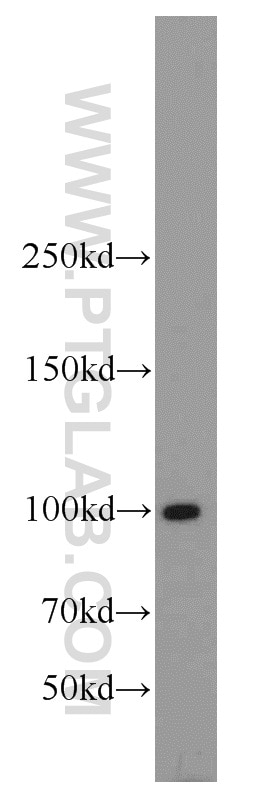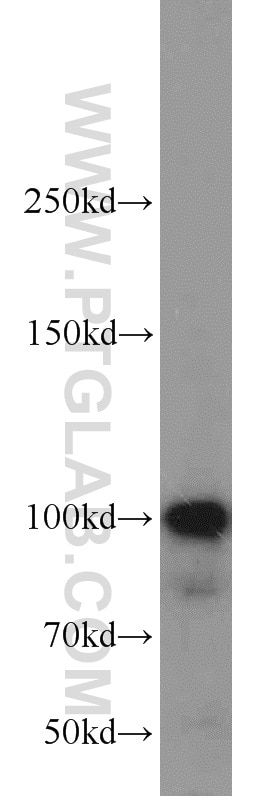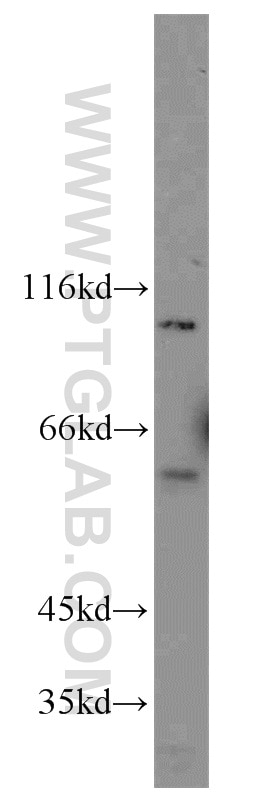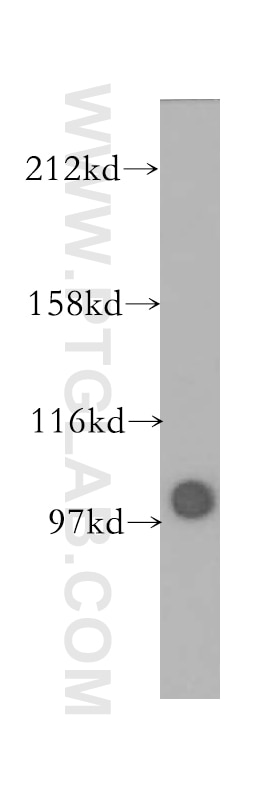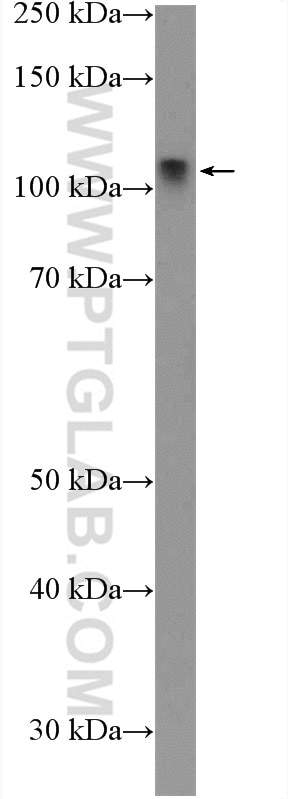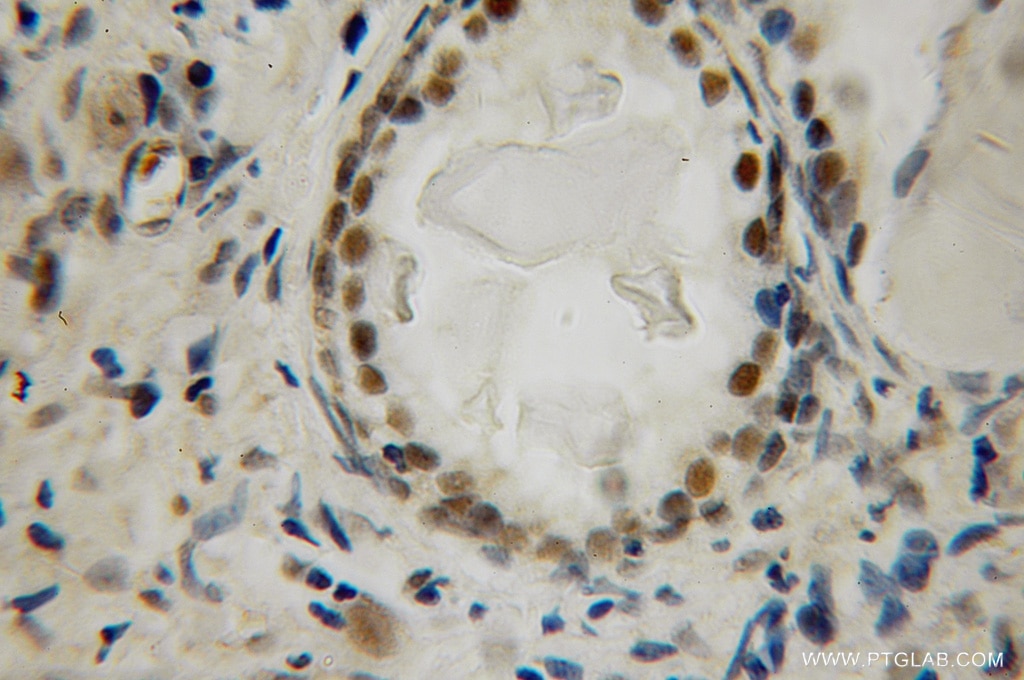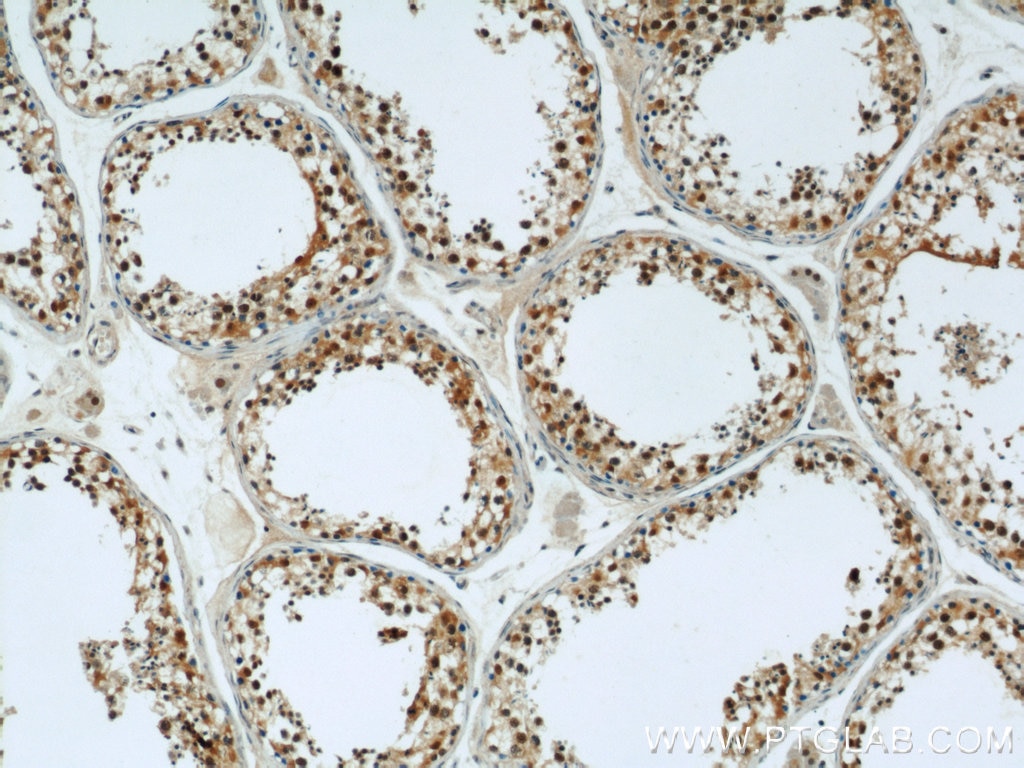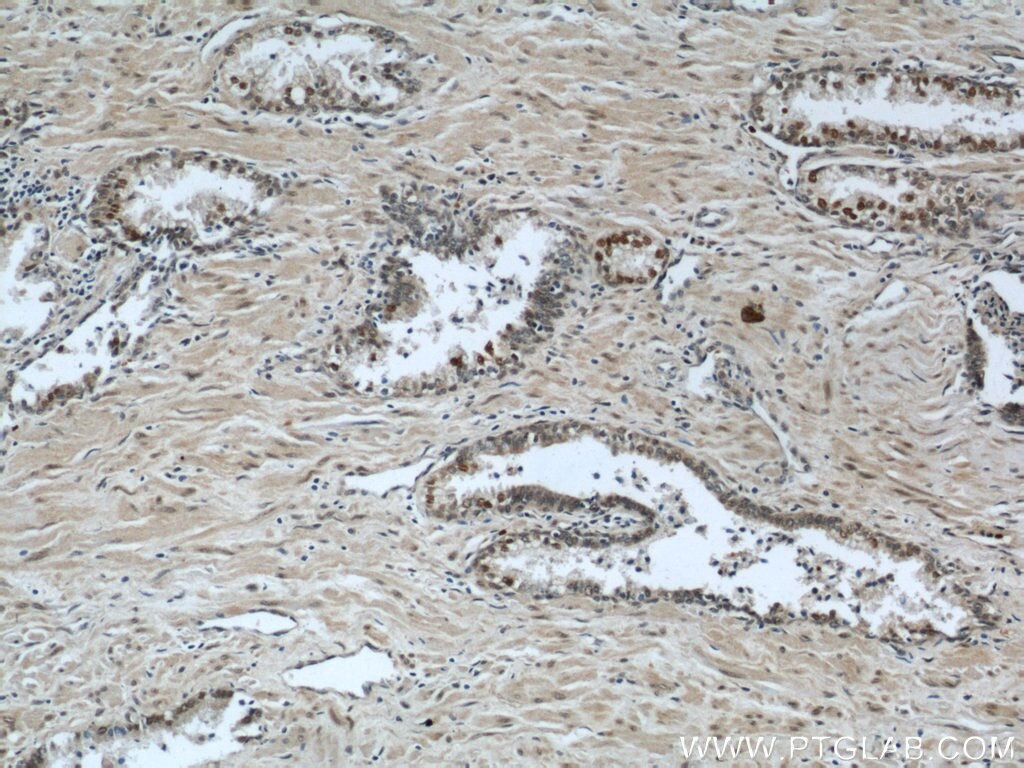- Featured Product
- KD/KO Validated
LIG4 Polyklonaler Antikörper
LIG4 Polyklonal Antikörper für WB, IHC, ELISA
Wirt / Isotyp
Kaninchen / IgG
Getestete Reaktivität
human, Maus, Ratte
Anwendung
WB, IF, IHC, ELISA
Konjugation
Unkonjugiert
Kat-Nr. : 12695-1-AP
Synonyme
Galerie der Validierungsdaten
Geprüfte Anwendungen
| Erfolgreiche Detektion in WB | Maushodengewebe, HeLa-Zellen, HepG2-Zellen, Mauslebergewebe, Rattenhodengewebe |
| Erfolgreiche Detektion in IHC | humanes Prostatakarzinomgewebe, humanes Hodengewebe Hinweis: Antigendemaskierung mit TE-Puffer pH 9,0 empfohlen. (*) Wahlweise kann die Antigendemaskierung auch mit Citratpuffer pH 6,0 erfolgen. |
Empfohlene Verdünnung
| Anwendung | Verdünnung |
|---|---|
| Western Blot (WB) | WB : 1:500-1:1000 |
| Immunhistochemie (IHC) | IHC : 1:20-1:200 |
| It is recommended that this reagent should be titrated in each testing system to obtain optimal results. | |
| Sample-dependent, check data in validation data gallery | |
Veröffentlichte Anwendungen
| KD/KO | See 1 publications below |
| WB | See 21 publications below |
| IF | See 2 publications below |
Produktinformation
12695-1-AP bindet in WB, IF, IHC, ELISA LIG4 und zeigt Reaktivität mit human, Maus, Ratten
| Getestete Reaktivität | human, Maus, Ratte |
| In Publikationen genannte Reaktivität | human, Maus, Ratte |
| Wirt / Isotyp | Kaninchen / IgG |
| Klonalität | Polyklonal |
| Typ | Antikörper |
| Immunogen | LIG4 fusion protein Ag3385 |
| Vollständiger Name | ligase IV, DNA, ATP-dependent |
| Berechnetes Molekulargewicht | 911 aa, 104 kDa |
| Beobachtetes Molekulargewicht | 100-104 kDa |
| GenBank-Zugangsnummer | BC037491 |
| Gene symbol | LIG4 |
| Gene ID (NCBI) | 3981 |
| Konjugation | Unkonjugiert |
| Form | Liquid |
| Reinigungsmethode | Antigen-Affinitätsreinigung |
| Lagerungspuffer | PBS mit 0.02% Natriumazid und 50% Glycerin pH 7.3. |
| Lagerungsbedingungen | Bei -20°C lagern. Nach dem Versand ein Jahr lang stabil Aliquotieren ist bei -20oC Lagerung nicht notwendig. 20ul Größen enthalten 0,1% BSA. |
Hintergrundinformationen
Two major pathways, homologous recombination (HR) and nonhomologous end joining (NHEJ), counteract one of themost toxic lesions, the DSB. The core protein complex mediating NHEJ in mammals includes DNA ligase IV (Lig4). Lig4 belongs to an ATP-dependent DNA ligase family, and joins single-strand brdownloadeaks in a double-stranded polydeoxynucleotide in an ATP-dependent reaction. The complex Lig4-XRCC4 is responsible for the NHEJ ligation step, and XRCC4 enhances the joining activity of Lig4.
Protokolle
| Produktspezifische Protokolle | |
|---|---|
| WB protocol for LIG4 antibody 12695-1-AP | Protokoll herunterladen |
| IHC protocol for LIG4 antibody 12695-1-AP | Protokoll herunterladen |
| Standard-Protokolle | |
|---|---|
| Klicken Sie hier, um unsere Standardprotokolle anzuzeigen |
Publikationen
| Species | Application | Title |
|---|---|---|
Cell Host Microbe Cellular DNA ligase I is recruited to cytoplasmic vaccinia virus factories and masks the role of the vaccinia ligase in viral DNA replication.
| ||
Nat Commun Reciprocal regulation of RIG-I and XRCC4 connects DNA repair with RIG-I immune signaling. | ||
J Allergy Clin Immunol XRCC4 deficiency in human subjects causes a marked neurological phenotype but no overt immunodeficiency. | ||
Nat Commun Rap1 regulates hematopoietic stem cell survival and affects oncogenesis and response to chemotherapy. | ||
Nat Commun Interactome analysis identifies a new paralogue of XRCC4 in non-homologous end joining DNA repair pathway. | ||
Cancer Res Inhibition of ATM Induces Hypersensitivity to Proton Irradiation by Upregulating Toxic End Joining. |
